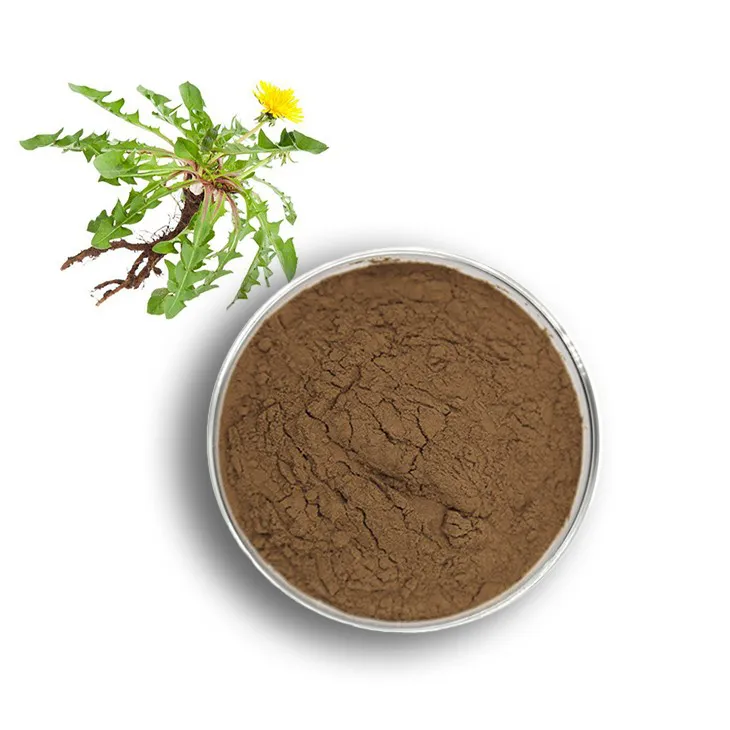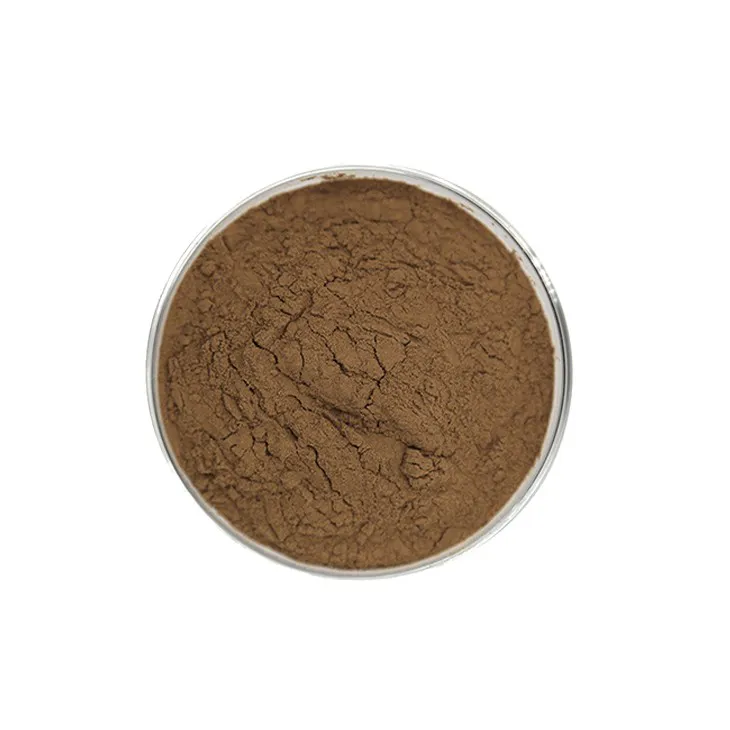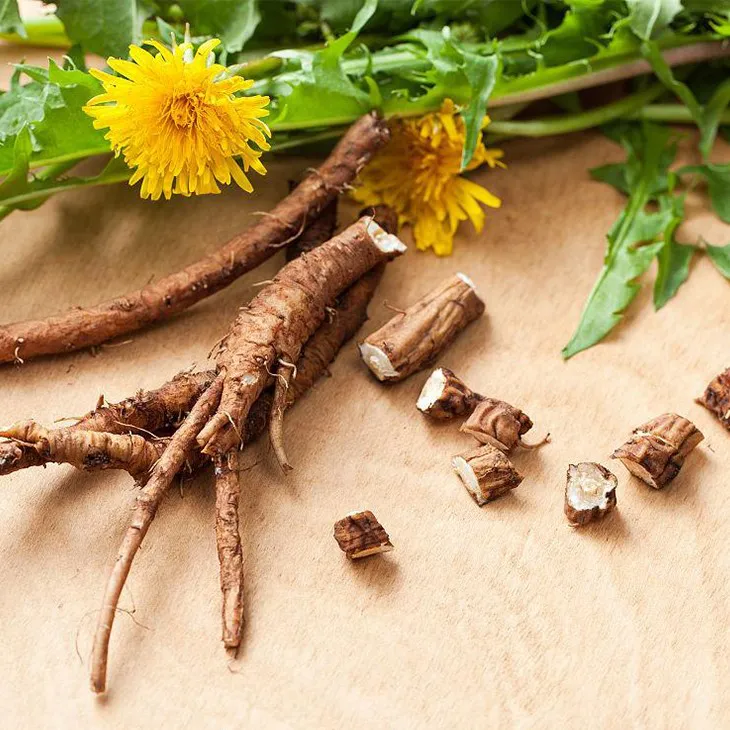- 0086-571-85302990
- sales@greenskybio.com
A Guide to Getting the Best Price on Unsweetened Dandelion Root Extract.
2024-12-10

1. Introduction
Unsweetened Dandelion Root Extract has gained popularity in recent years due to its various health benefits. However, the price can vary significantly depending on where you buy it and how you approach the purchase. This guide aims to help you get the best price on this product by exploring different aspects such as local and online markets, quality - price balance, and negotiation tips.

2. Local Markets
2.1 Health Food Stores
Health food stores are a common place to find unsweetened Dandelion Root Extract. They often carry a variety of natural and organic products. However, the prices in these stores can be relatively high. This is because they usually have higher overhead costs, including rent for prime locations, staff salaries, and a focus on providing a high - level of customer service. For example, a small - sized bottle of Dandelion Root Extract in a popular health food store in a city center might cost $20 - $30.
2.2 Farmers' Markets
Farmers' markets can be a great alternative. Some local farmers or small - scale producers may sell their own dandelion root extract. The advantage here is that you might be able to get a more competitively priced product. Since they don't have the same high - level of overhead as large health food stores, they can offer lower prices. Additionally, you may have the opportunity to talk directly to the producers and learn more about the product's origin and production process. You could potentially find a bottle of dandelion root extract for around $15 - $20 at a farmers' market.
- However, the selection at farmers' markets may be more limited compared to health food stores.
- Also, the quality may vary more as it may not be as strictly regulated as products in commercial stores.
2.3 Pharmacies
Pharmacies sometimes carry unsweetened dandelion root extract as well. The prices in pharmacies can be in the middle range. They may offer some branded products that are more expensive, but they might also have generic or store - brand versions that are more affordable. For instance, a pharmacy - brand dandelion root extract could cost around $18 - $25. Pharmacies also often have sales or loyalty programs that can help you save money.
- One drawback is that the staff in pharmacies may not be as knowledgeable about dandelion root extract as those in health food stores.
- They may focus more on pharmaceutical products rather than natural supplements.

3. Online Markets
3.1 E - commerce Platforms
E - commerce platforms like Amazon, eBay, and others offer a wide range of unsweetened dandelion root extract products. There are several advantages to buying from these platforms. Firstly, the competition among sellers is fierce, which often leads to lower prices. You can find products from different brands and manufacturers, allowing you to compare prices and choose the most affordable option. For example, on Amazon, you can find dandelion root extract for as low as $10 - $15 for a standard - sized bottle.
- However, be cautious of counterfeit or low - quality products. Read reviews carefully and check the seller's reputation.
- Shipping costs can also add to the overall price, especially if you need the product quickly or if the seller offers expensive shipping options.
3.2 Manufacturer's Websites
Buying directly from the manufacturer's website can also be a good option. Some manufacturers offer discounts for direct purchases, as they can cut out the middleman. They may also have exclusive deals or loyalty programs for their customers. For instance, a particular manufacturer might offer a 10% - 20% discount if you sign up for their newsletter or become a member of their loyalty club.
- On the downside, the product selection on a single manufacturer's website may be more limited compared to e - commerce platforms.
- And sometimes, the shipping costs from the manufacturer can be relatively high if they don't have a large - scale distribution network.

4. Quality - Price Balance
When looking for the best price on unsweetened dandelion root extract, it's crucial not to sacrifice quality for the sake of a lower price. Quality indicators include the purity of the extract, the source of the dandelion roots (organic vs. non - organic), and the extraction method.
4.1 Purity
Higher - purity extracts are generally more expensive but may offer better health benefits. A pure dandelion root extract should not contain fillers or additives. For example, a high - purity extract may cost $25 - $35 per bottle, while a lower - purity one with some fillers might be available for $10 - $15. However, the lower - purity product may not be as effective.
4.2 Organic vs. Non - organic
Organic dandelion root extract is often more costly because it requires strict compliance with organic farming standards. Organic farming involves no use of synthetic pesticides or fertilizers, which can be more labor - intensive and expensive. An organic dandelion root extract might cost $30 - $40 per bottle, while a non - organic version could be $15 - $25. If you are concerned about pesticide residues or prefer more natural products, it may be worth paying the extra cost for organic.
4.3 Extraction Method
Different extraction methods can also affect the price and quality. For example, a cold - pressed extraction method may preserve more of the beneficial compounds in the dandelion root, but it can be more expensive to produce. A dandelion root extract produced using a cold - pressed method might cost $30 - $40, while one produced using a more common solvent - based extraction method could be $15 - $25. If you are looking for a high - quality product with maximum health benefits, it may be better to invest in the more expensive, high - quality extraction method.
5. Negotiation Tips
In some cases, you may be able to negotiate the price of unsweetened dandelion root extract, especially in local markets.
5.1 Local Stores
In local health food stores or pharmacies, if you are a regular customer or if you are buying in bulk, you can try to negotiate a discount. For example, if you plan to buy several bottles of dandelion root extract at once, you can ask the store manager if they can offer a volume discount. You could say something like, "I'm interested in buying 5 bottles of your dandelion root extract. Is there any possibility of getting a discount?"
- Another approach is to mention if you have seen the product cheaper elsewhere. But be polite and respectful when doing this. For instance, "I noticed that another store in town is selling a similar dandelion root extract for a lower price. Can you match it or offer a better deal?"
5.2 Farmers' Markets
At farmers' markets, negotiation can be more straightforward. Since you are often dealing directly with the producers, you can ask if they can give you a better price, especially if you are buying multiple items or if it's near the end of the market day. For example, "I really like your dandelion root extract. I'm thinking about buying two bottles. Can you give me a little discount?"
- You can also offer to promote their product to your friends or on social media in exchange for a discount. For example, "If you can give me a good deal on this dandelion root extract, I'll be happy to share it with my friends on Facebook."
6. Conclusion
Getting the best price on unsweetened dandelion root extract requires careful consideration of different factors. By exploring both local and online markets, understanding the quality - price balance, and using negotiation tips when possible, you can find a product that meets your needs and budget. Whether you choose to buy from a local health food store, a farmers' market, an online e - commerce platform, or directly from a manufacturer, make sure to do your research and compare options to ensure you are getting the best value for your money.
FAQ:
Q1: What are the main differences between local and online markets for unsweetened dandelion root extract in terms of price?
Local markets may have the advantage of no shipping costs, but they might have higher overheads due to rent and staff. Online markets often have a wider range of suppliers, which can lead to more competitive pricing. However, you need to factor in shipping fees. Sometimes, local stores might offer discounts on bulk purchases, while online platforms may have special deals during certain seasons or sales events.
Q2: How can I ensure a good quality - price balance when buying unsweetened dandelion root extract?
Firstly, research different brands and read customer reviews. Look for products that have a good reputation for quality but are reasonably priced. Compare the ingredients and manufacturing processes of different products. Sometimes, a slightly higher - priced product may be of better quality in terms of purity and extraction methods. Also, consider the quantity you are getting for the price. A larger quantity at a slightly higher price per unit might be a better deal in the long run.
Q3: Are there any specific negotiation tips when buying unsweetioneddandelion root extract?
If you are buying from a local store, be polite and friendly when asking for a discount. Mention that you are a regular customer or that you plan to make future purchases. Point out any flaws in the packaging or if the product has been on the shelf for a while. For online purchases, you can try contacting the seller and asking if they have any ongoing promotions or if they can offer a better price for a larger quantity. Some online sellers may be willing to negotiate, especially if you are buying in bulk.
Q4: What factors can affect the price of unsweetened dandelion root extract?
The quality of the raw materials used is a major factor. Higher - quality dandelion roots will likely result in a more expensive extract. The extraction method also matters; more advanced and pure extraction methods may cost more. Brand reputation can influence the price, as well - known brands may charge more. Additionally, supply and demand play a role. If there is a high demand and limited supply, the price will tend to be higher.
Q5: How do I find reliable suppliers of unsweetened dandelion root extract?
Look for suppliers with good customer reviews and ratings. Check if they are certified by relevant regulatory bodies. A reliable supplier should be transparent about their ingredients, manufacturing processes, and sourcing. You can also ask for recommendations from friends or in relevant health and wellness communities. Another option is to research the history of the supplier, how long they have been in business, and if they have had any past issues with product quality.
Related literature
- The Complete Guide to Herbal Extracts Pricing"
- "Understanding the Market of Dandelion Root - Based Products"
- "Quality and Cost Analysis in Herbal Supplement Markets"
- ▶ Hesperidin
- ▶ citrus bioflavonoids
- ▶ plant extract
- ▶ lycopene
- ▶ Diosmin
- ▶ Grape seed extract
- ▶ Sea buckthorn Juice Powder
- ▶ Beetroot powder
- ▶ Hops Extract
- ▶ Artichoke Extract
- ▶ Reishi mushroom extract
- ▶ Astaxanthin
- ▶ Green Tea Extract
- ▶ Curcumin Extract
- ▶ Horse Chestnut Extract
- ▶ Other Problems
- ▶ Boswellia Serrata Extract
- ▶ Resveratrol Extract
- ▶ Marigold Extract
- ▶ Grape Leaf Extract
- ▶ blog3
- ▶ blog4
- ▶ blog5
-
Pure 85% Tomentil Extract.
2024-12-10
-
Honeysuckle Pollen
2024-12-10
-
Alfalfa Meal
2024-12-10
-
Avocado Extract Powder
2024-12-10
-
Almond Extract Powder
2024-12-10
-
Kelp Extract Powder
2024-12-10
-
Marigold Extract
2024-12-10
-
Calendula Extract
2024-12-10
-
Alisma Extract
2024-12-10
-
Golden Seal Extract
2024-12-10
-
Saffron Extract Powder
2024-12-10





















